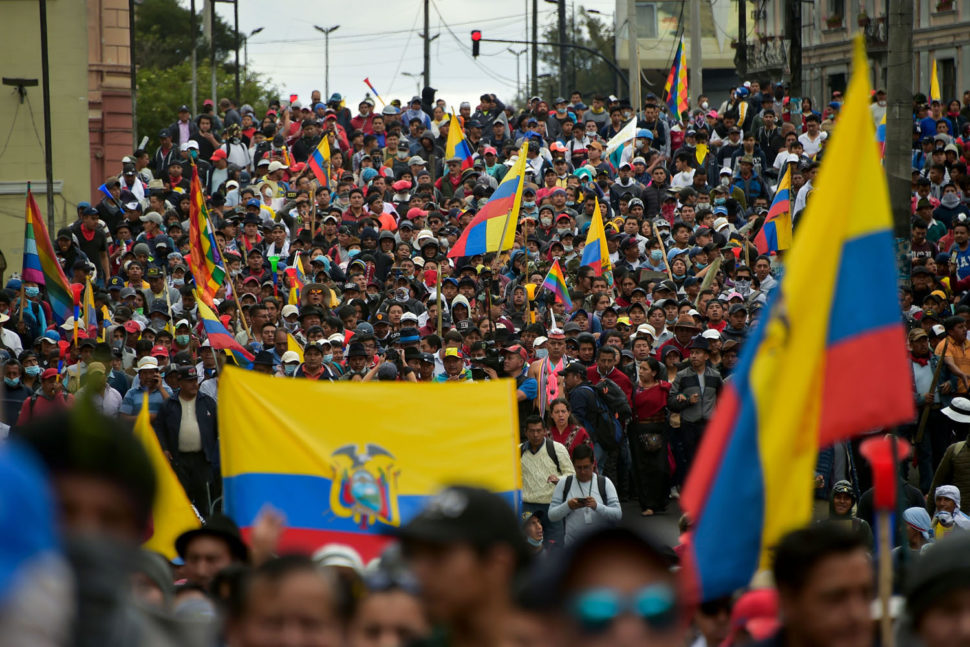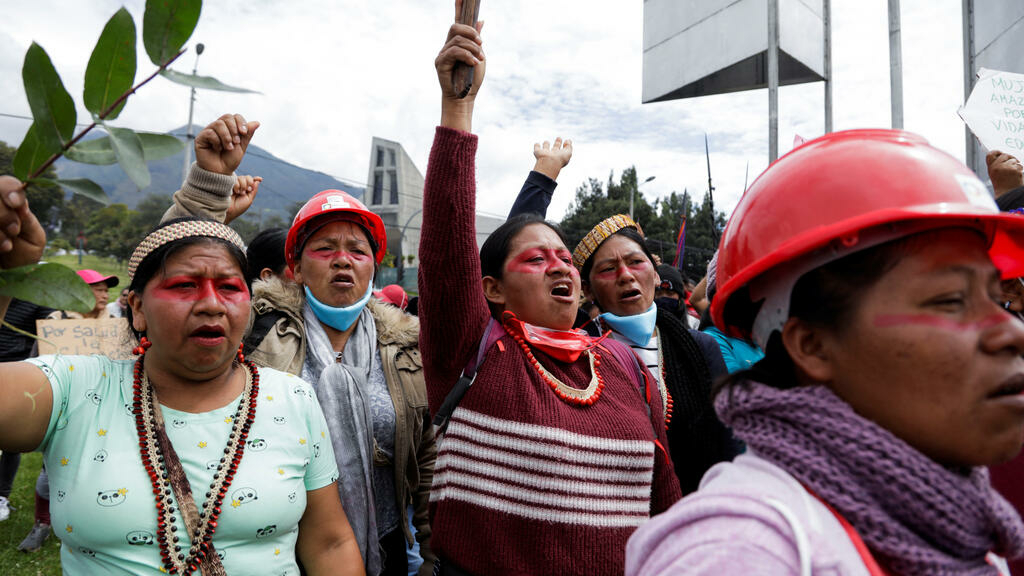
On June 13th, indigenous leaders and protesters began marching the city streets of Quito, Ecuador‘s capital. With the aftermath of the pandemic, inflation, and rising oil prices the Latin American country is experiencing widening economic inequalities. Ecuadorians are demanding that President Guillermo Lasso freeze gasoline costs, stop plans to expand mining development, extend debt payment deadlines for small farmers, and reinvest in social welfare and education programs. With protests nearing their third week, the US Department of States issued an updated travel advisory. The department of state urges Americans to “reconsider travel to Ecuador due to civil unrest and crime.”
Here’s what we know:
Confederación de Nacionalidades Indígenas del Ecuador (CONAIE)- Ecuador’s powerful Indigenous federation- initiated protest with a list of 10 demands for the government. Ecuador’s cost of living has reached unsustainable levels, not only for the indigenous population but for city dwellers as well. The Guardian quotes a resident from the city capital, Miguel Terán who is a mechanical engineer participating in the demonstrations. Terán states, “There is a clamor among the people, especially those who don’t have a job. It’s very difficult to live when all the prices have risen so much.” According to Ecuador’s statistics institute, unemployment peaked during the pandemic, and recovery has been slow with just 33.2% of Ecuadorians currently employed. CONAIE leader, Leonidas Iza, states “while the business elite had received government bailouts after the pandemic, “for the poorest there is absolutely nothing…the crisis should be borne by all Ecuadorians, not only by the poor.”
CNN reports, “At least four people have died amid ongoing protests… many police officers have been injured and more than 100 people have been arrested, authorities also said.” Americas director for Amnesty International said its investigations showed that the death of a protester last Tuesday “was caused by security force agents, most likely police officers, through the use of excessive force”.
To date, CONAIE has denied government offers to dialogue, in exchange for the president publically addressing the demands made by the people to the entire country.





